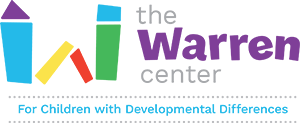Children with congenital or developmental problems with speaking, feeding, swallowing, or using languages may need to see a pediatric speech therapist. Speech and language pathologists are licensed professionals who evaluate and treat problems associated with swallowing, speaking, and communication.
What is Pediatric Speech-Language Pathology?
Speech-language pathology is a field of expertise in which a licensed clinician treats problems related to swallowing or speaking. The specialization of pediatric speech-language pathology provides speech therapy evaluations and exercises for young children with communication disorders.
For example, some children are born with disorders that hinder or inhibit normal speech, including cleft palate or cerebral palsy. Other children may have injuries or disorders that affect the brain, neurological pathways, or muscular structure. Problems that affect each one of these systems may influence how the brain and body can complete speech or swallowing. A pediatric speech therapist can provide a treatment plan to help the child overcome these challenges.
Congenital or developmental disorders can affect the use of speech and language as well as the ability to use facial or throat muscles to swallow and chew. These challenges can have a direct impact on pediatric developmental health as well as the quality of life. Our speech therapists can perform a speech therapy evaluation to assess the disorder in relation to skills acquisition and milestones typical for the child’s age.
Each of our speech therapists undergoes rigorous training to provide clinical care for children. This includes graduate-level speech pathology education, over 400 hours of initial clinic experience, and licensure from the Texas State Board of Examiners for Speech-Language Pathology and Audiology. The training process ensures that our pediatric speech therapists have the relevant skills necessary to help meet your child’s needs.
Frequently Asked Questions (FAQs)
Why Does My Child Need Pediatric Speech Therapy?
Communication and nutrition are two of the most important parts of early childhood development. In order for your child to reach appropriate developmental milestones, both speaking and swallowing must function correctly. Unfortunately, some children may experience disorders and delays that interfere with this function. Examples of problems that may require help from pediatric speech therapists include the following:
- Articulation: Some children may not be able to express sounds clearly so that others can understand. A pediatric speech therapist can provide evaluation and speech therapy exercises to help with articulation of difficult sounds. This clinic assistance helps with comprehension, confidence in language expression, and may reduce frustration in the child’s academic performance and social interaction.
- Feeding and Swallowing: Commonly referred to as dysphasia, this group of pediatric disorders can affect an infant’s ability to breastfeed or bottle feed. The disorder can also affect a toddler’s ability to wrap lips around food as well as chew and swallow. Speech therapists with pediatric specialization can diagnose and monitor such problems, ensuring that the child receives adequate nutrition.
- Fluency: Some children struggle with problems commonly known as “stuttering” or halting speech. Pediatric speech therapists can provide evaluation and exercises to help children speak and express themselves freely.
- Voice: Often referred to as resonance, child “voice” refers to pitch, quality, or tone. Pediatric speech therapy evaluation can assess problems with voice and help the child learn to naturally control and manage this trait.
For communication disorders, our pediatric speech therapists use custom techniques and exercises to teach children how to make the right sounds or to eliminate problems like prolonged pauses and stuttering. In addition to vocal exercises, we may also teach the child non-verbal approaches to communication (such as sign language symbols) to reduce problems or frustration in communicating with others.
First Pediatric Speech Therapy Appointment Tips and Information
The first appointment in a speech-language pathology clinic can include a speech therapy evaluation to assess the child’s current stage and challenges. This speech therapy pediatric evaluation may be a combination of the child’s medical history as well as clinical testing. Following the exam, the pathologist would share a comprehensive treatment plan for addressing any underlying functional issues.
We offer in-clinic pediatric speech therapy in Richardson, Carrollton, and Garland, Texas. The pediatric occupational therapy program works with children from age 3 years old to 8 years old.
For children needing services from birth – 3 years old, please refer to our Early Childhood Intervention Program.
Ask about both our occupational therapy services. Click here to Request Services.
Get the help your family needs today. In-person and Telehealth sessions are available.


